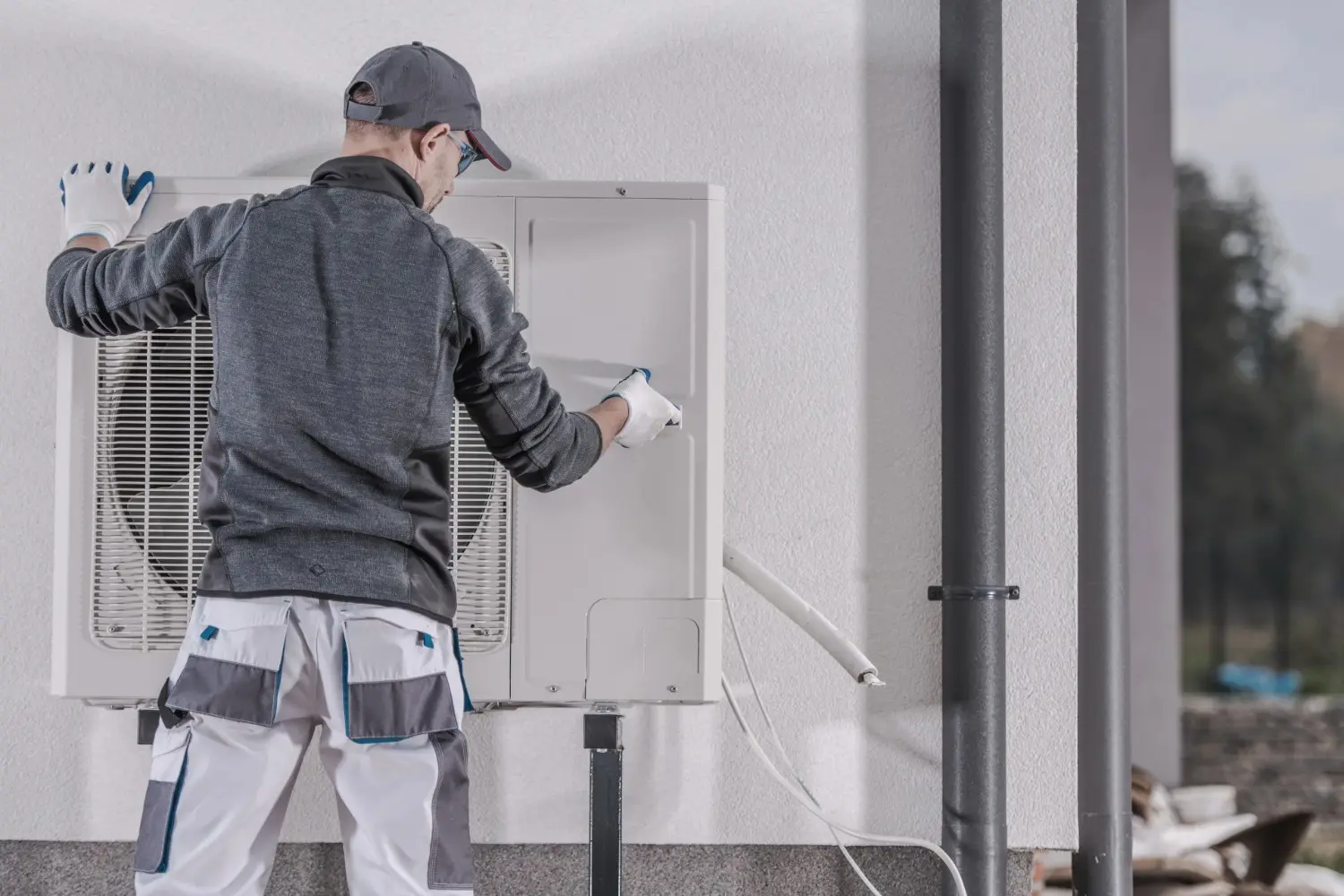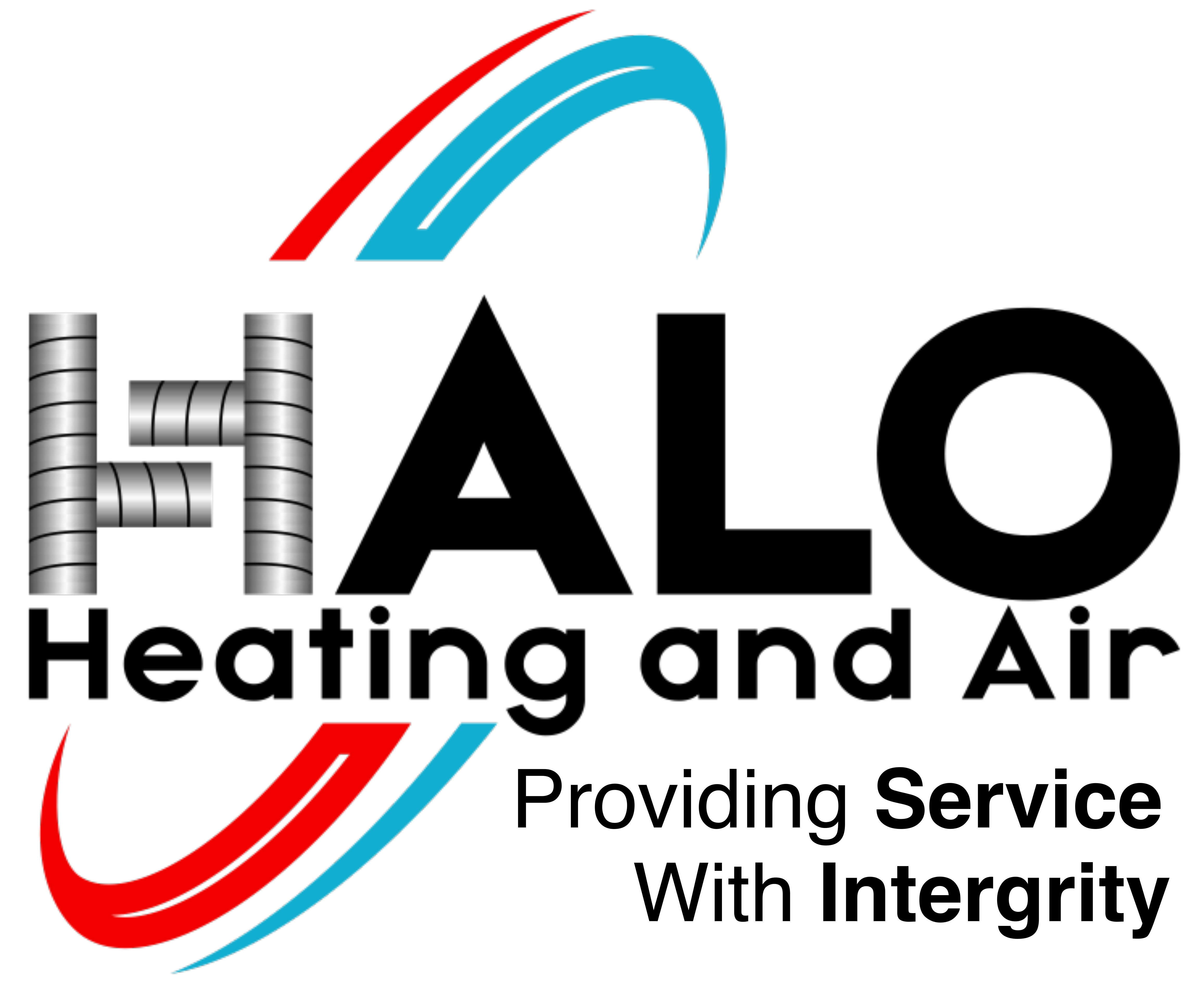Heat Pump Replacement in Longmont, CO
Heat Pump Replacement in Longmont, CO
Replacing an old or failing heat pump is a significant decision for any homeowner in Longmont, CO. As your home's central system for both heating and cooling, its reliable operation is crucial for comfort throughout the year, from cold Colorado winters to warm summer days. When your current heat pump is no longer meeting your needs, understanding the signs that indicate it's time for a replacement and what to expect from the process is the first step toward restoring comfort and efficiency. HALO Heating and Air is here to help you do just that.
Here’s How & How Long Heat Pumps Work
A heat pump system provides efficient temperature control by moving heat rather than generating it. In colder months, it extracts heat from the outdoor air (even when it feels cold) and transfers it inside. In warmer months, it reverses the process, moving heat from inside your home to the outside, effectively cooling your space. This dual functionality makes heat pumps a popular choice for year-round comfort in many Longmont residences.
However, like all mechanical systems, heat pumps have a limited lifespan. Typically, a well-maintained heat pump can last between 15 to 20 years. As the system ages, its components wear down, leading to decreased efficiency, increased energy bills, and a higher likelihood of breakdowns.

Is It Time to Replace Your Heat Pump?
Several indicators suggest your heat pump may be nearing the end of its service life. When these signs appear, replacement may be a more cost-effective solution than continued repairs. Here’s what to look for:
- Frequent Repairs: If you’re calling for Heat Pump Service multiple times during a single heating or cooling season, that’s a red flag. The cumulative cost of repairs can quickly approach—or even exceed—the cost of a new, more efficient unit. Constant breakdowns not only drain your budget but also disrupt your home’s comfort.
- Declining Temperature Control: An older heat pump often struggles to maintain a consistent indoor climate. If you notice uneven heating or cooling, hot or cold spots, the system running continuously without reaching your desired temperature, it may be a sign that the unit’s internal components are wearing down and its performance is deteriorating.
- Higher Energy Bills: As a heat pump ages, it becomes less efficient. Worn-out parts force the system to work harder and use more energy just to deliver the same results. If your energy usage has gone up compared to previous years, or compared to similar homes in Longmont, inefficiency could be the culprit.
- Unusual Noises: All HVAC systems make some noise, but strange or loud sounds are a concern. Grinding, buzzing, rattling, or banging may point to mechanical issues inside the unit. These problems can be expensive to fix and are often a sign that the system is approaching failure.
- Unit Age Over 15 Years: Even if your heat pump hasn’t had a major failure, its age is a significant factor. Most systems last 15 to 20 years when properly maintained. If yours is over 15 years old, it may be worth replacing proactively. Modern heat pumps have higher SEER (cooling) and HSPF (heating) ratings, offering better performance, reliability, and energy savings over time.
Detailed Evaluation: The First Step to a Successful Installation
When the time comes for Heat Pump Installation in Longmont, the process typically begins with a thorough assessment of your home's specific needs. This involves evaluating the size and layout of your house, insulation levels, window types, and your family's comfort preferences. A correctly sized heat pump is essential for optimal performance and efficiency. An oversized unit can cycle on and off too frequently (short-cycling), which is inefficient and causes uneven temperatures. An undersized unit will struggle to keep your home comfortable during peak demand, running constantly without success.
During the assessment, a qualified technician will calculate the appropriate heating and cooling load for your property. They will also inspect your existing ductwork (if applicable) to ensure it can support the new system and identify any potential issues that could impact performance or efficiency.
Choosing the right heat pump involves considering various factors, including size, efficiency ratings, single-stage, two-stage, or variable-speed technology, and features like smart thermostat compatibility. Higher efficiency models may have a higher upfront cost but offer lower operating expenses over their lifespan. The technician can explain the options available and help you select a system that best fits your home, budget, and energy-saving goals. Modern heat pumps, including those from partners like Lennox, are designed for enhanced performance and reliability.
From Setup to Startup: Flawless Heat Pump Installation
Once the system is selected, the replacement process involves carefully removing the old heat pump components, including the outdoor unit, indoor air handler (or furnace coil), refrigerant lines, and electrical connections. The new system is then installed according to manufacturer specifications and local building codes. This includes placing the new units, connecting refrigerant lines, electrical wiring, and possibly making modifications to ductwork or the pad the outdoor unit sits on.
Proper installation is critical for the longevity and performance of your new heat pump. It ensures the system operates safely, efficiently, and reliably. After installation, the technician will test the system thoroughly to verify proper operation in both heating and cooling modes, check refrigerant levels, and ensure thermostats are communicating correctly with the unit. They will also walk you through the basic operation and maintenance requirements of your new system.
Long-Term Benefits and Maintenance of Your New Heat Pump
Investing in a new heat pump not only enhances comfort and reduces energy costs but also adds value to your Longmont home. A modern, efficient HVAC system is a key selling point if you ever decide to move. Furthermore, replacing an outdated system helps reduce your household's carbon footprint by consuming less energy.
To maximize the lifespan and efficiency of your new heat pump, regular Heat Pump Maintenance is highly recommended. Routine tune-ups involve cleaning components, checking refrigerant levels, inspecting electrical connections, lubricating moving parts, and verifying proper airflow. This preventative care helps catch minor issues before they turn into major problems, ensures the system operates at peak efficiency, and can help maintain warranty coverage.
Work with the Right Team for Lasting Comfort
Choosing a reputable HVAC company such as HALO Heating and Air for your heat pump replacement in Longmont is essential. Look for experienced technicians who understand the specific heating and cooling needs of the Colorado climate. Expertise in selecting, sizing, and installing the correct system for your home is paramount to achieving optimal performance and lasting comfort. Professionals can also advise on potential rebates or Financing options that may be available for high-efficiency system upgrades, helping to make the investment more manageable.
Make the Switch to Reliable, Year-Round Climate Control
A new heat pump system represents a significant upgrade to your home's comfort and energy efficiency infrastructure. By addressing the signs of an aging unit promptly and partnering with experienced professionals for the replacement process, you can enjoy reliable, consistent comfort and lower energy bills for years to come in your Longmont home.
Financing
Whether it's a repair or a new installation, our financing options help you get the comfort you need now—while paying over time with manageable monthly payments.
Customer Testimonials
See what homeowners across Windsor and Northern Colorado are saying about our reliable service, expert workmanship, and commitment to getting the job done right.



.svg)




